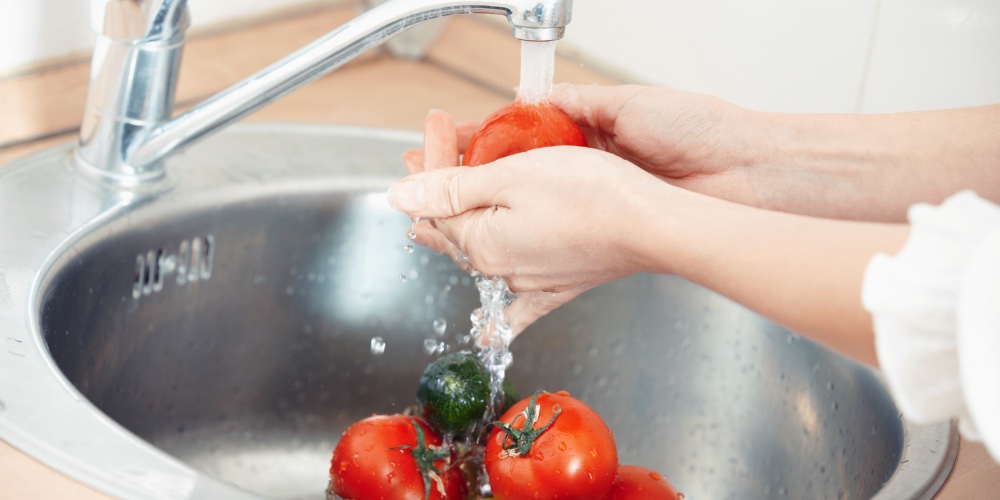You’re making these 7 dangerous cooking mistakes

The Government of Canada estimates that there are approximately 11 million cases of food poisoning in Canada every year.
These types of illnesses typically can be avoided by following proper food safety and handling guidelines.
Here are the most common, yet dangerous, missteps in your daily routines that could turn your food coma into a real one.
Not washing your hands!
Hand washing is the cardinal rule of cooking — yet people forget to follow it. Hand washing “cuts down the spread of bacteria. germs from unwashed hands can transfer onto surfaces, people or, even worse, onto your food.
Rinsing poultry in the sink!
This is the one time you don’t want to wash something you’ll be cooking. While rinsing fruits and vegetables is always a good idea — as they can carry harmful germs like Listeria, E. Coli and Salmonella — skip rinsing off raw meat. The spray of the faucet could spread dangerous bacteria around the kitchen. Washing your chicken does not remove any pathogenic bacteria, and you could be contaminating your kitchen and any food that is left out on the countertop…
Using the same utensils when handling raw and cooked meat!
So when you’re preparing grandma’s famous bolognese, switch your spoon when it’s nearly cooked to avoid contamination.
Not using a Meat Thermometer
The naked eye can only see so much — especially when it comes to meat. Research has shown you cannot tell whether a food is thoroughly cooked by just looking at its colour or texture. Instead, reach for a meat thermometer — after washing your hands — to determine if the food is really “done.” Beef, fish and shellfish should reach 145 degrees Fahrenheit.
Forgetting to store leftovers within two Hours!
Don’t let your meal get cold — at least not on the kitchen counter.
Food that’s been left out for more than two hours must be tossed, otherwise, disease-causing bacteria can begin to flourish. But be warned, leftovers left in the fridge for more than four days can be dangerous to eat.
Thawing Meat on The Counter!
Marinating or thawing meat on the counter is also a big no-no. Experts say germs can multiply quickly at room temperature, making the raw meat a breeding ground for disease-causing bacteria. Instead, throw it in the fridge, or microwave it if you’re in a rush. Dubbed the “temperature danger zone,” food should not be stored between 40 and 140 degrees Fahrenheit — a.k.a. room temperature.
Eating Certain Foods When You’re at High Risk!
People with weakened immune systems; children under the age of 5; pregnant people; and those over the age of 65 are especially at risk of falling ill from food-borne diseases. Over easy eggs or a rare to medium-rare steak could be contaminated and should be avoided if you are at high risk.
Beat FOMO by being in the know!
Sign up for our newsletter today and never miss a beat.







